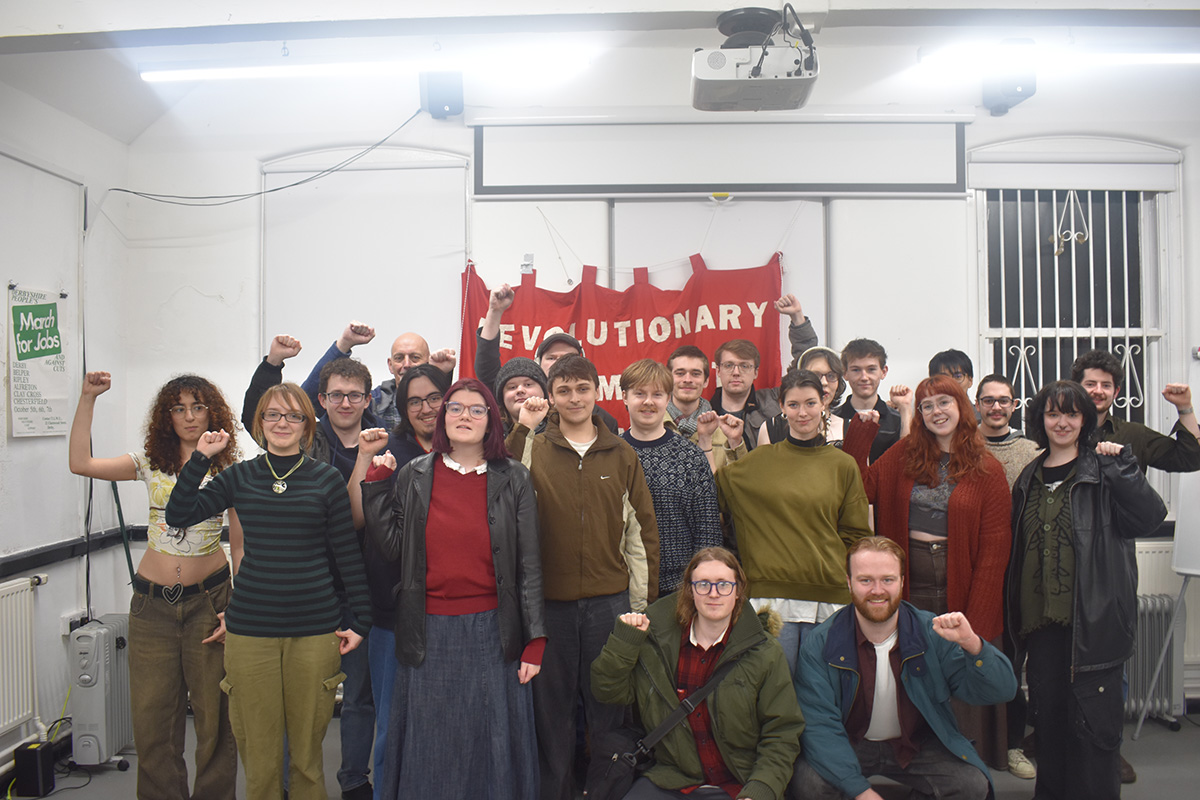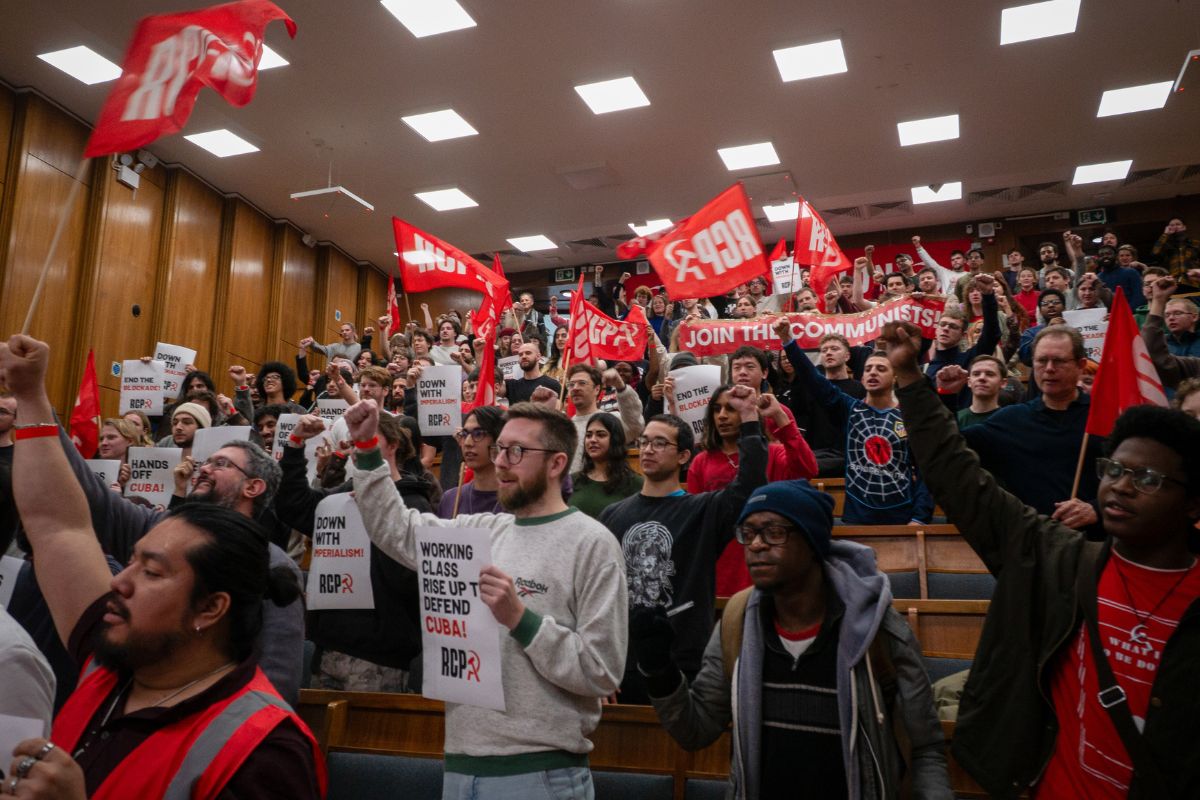Vladimir Ilyich Lenin was described by John Reed – author of Ten Days that Shook the World, an eyewitness account of the Russian Revolution – as the most loved and most hated person alive. And this remains the case even a century since his death.
Lenin was loved by hundreds of millions of people who wanted to change society. But he was hated by the ruling class and their apologists.
The reason for this hatred is because Lenin was successful. In October 1917, for the first time in history, the working class took power and held it. They showed that they could run society without the help of bosses and bankers.
This was all possible because the working class had a leadership in the Bolshevik Party that was able to guide the revolution to success.
Livestream will play here at 3pm on 21 January
Lenin once said that capitalism is horror without end. Capitalism today offers us nothing but poverty, suffering and war. For that reason, the campaign of slander against Lenin continues. Workers and young people can’t be allowed to think that a better future is possible. And so the name of Lenin and the Bolsheviks has to be smeared with all kinds of lies.
We think the time has come to set the record straight. The International Marxist Tendency is therefore launching a campaign to celebrate the life, works, and legacy of this great revolutionary.
Far from being old and outdated, Lenin’s ideas are more relevant than ever. They provide an invaluable tool in the hands of revolutionaries today.
As Lenin once said: “Without revolutionary theory there can be no revolutionary movement.” It is up to revolutionaries of today to study the works of Lenin, and to build a revolutionary party along the lines of the Bolsheviks, in order to bring about a successful struggle for communism.
We call on all our supporters to not only attend this #Lenin100 meeting, but to help us spread it far and wide. Invite your friends, family and colleagues. And help us reach an even wider audience by sharing the event on social media.
Lenin may have died 100 years ago, but his ideas live on today. In the words of the Russian poet Vladimir Mayakovsky: “Lenin lived, Lenin lives, Lenin is to live forever!”
Our ‘Lenin lives!’ event will take place in London, at Hanover Primary School Sports Hall, N1 8BD. It will also be streamed live on our YouTube channel. You can buy tickets to the in-person event here.
In Defence of Lenin: Portrait of a true revolutionary
Wellred Books
For those wanting to understand the person of Lenin, it is imperative to read him for themselves. With 45 volumes of collected works (in English), however, this is a significant challenge – really the work of a lifetime.
Wellred Books’ upcoming biography of Lenin, In Defence of Lenin, provides an accessible overview, in this respect, presenting his ideas and their relevance for a new generation of revolutionaries.
The beauty of the book is that it is suitable for both the beginner and more advanced student of the history of Bolshevism. Someone completely fresh on their journey into Marxism has in their hands an extensive compendium of the figure of Lenin and his ideas, which have been subjected to so much distortion and calumny.
View this post on Instagram
But even for comrades familiar with titles such as Lenin and Trotsky: What they really stood for, or who have already listened to the Bolshevism audiobook on their commute to work, this new publication will still offer many inspiring insights, painting a vivid portrait of a true revolutionary.
The first few chapters, for example, are of a more personal nature, containing facts about Lenin’s upbringing that few of us would previously have been familiar with. These are not just ‘nice to know’, but are crucial for setting the scene for the later sections on Lenin’s political development and radicalisation.
In Defence of Lenin is spread over two volumes, and spans over a thousand pages, setting the necessary context for various key events: the launch of Iskra; the various debates in the early Russian workers’ movement; the split in 1903; and the 1905 revolution – in Lenin’s words, the “dress rehearsal” for the October Revolution in 1917.
Events such as the period of reaction before the First World War, and the war itself, aptly illustrate the importance Lenin attached to defending the banner of Marxism against all kinds of revisionism. This was a period where Lenin was extremely isolated, and often in a minority in his own party.
Chapter 20 on ‘Lenin’s Response from Exile’, with extensive quotations from his Letters from Afar, is a particularly effective transition to the fresh winds of revolution that had started blowing by this time.
Lenin’s essential role is unquestionable. Without his ideological rearming of the party – which at times was bending to pressures, and was being swept along helplessly by events – there would have been no October Revolution.
Volume one clearly shows how the road to creating the Bolshevik Party did not proceed in a straight line. It was a hard path, full of difficulties, setbacks, and frustrations.
Volume two, which deals with the October Revolution itself, and its aftermath, continues this theme. From the very start, it was a full on fight for survival for the nascent Soviet republic.
The authors, Alan Woods and Rob Sewell, deal with the various achievements of the revolution. But they don’t shy away from the very real difficulties posed by the material and cultural backwardness of the early workers’ state, not to mention the brutal civil war and famine that stalked the land.
This sort of honesty is merely a continuation of the thoroughly honest approach that Lenin himself time and again adopted. His method was always to say what is; to tell the truth.
In fact, here is another aspect that permeates In Defence of Lenin: a demonstration of how thoroughly human he was. Lenin had a real sense of humour and personal warmth.
As the authors say in the introduction, all those who ever met Lenin were struck, not only by his intellect, but also by his great sense of humour – an aspect which his detractors wish to eradicate or ignore. “They make no mention of this for the simple reason that a sense of humour doesn’t quite fit with the ‘narrative’ of a bloodthirsty dictator.”
The appendix ‘Krupskaya on Lenin’ only reinforces this human side. Here, Lenin’s lifelong partner and comrade-in-arms – amongst other things – delves into Lenin’s meticulous methods; how he wrote for the masses; his literary tastes; the influence the old revolutionary Chernyshevsky had on Lenin’s development; and last but not least, how Lenin studied Marx.
Above all, however, In Defence of Lenin is a treasure trove of ideas which revolutionaries today can dig into. Like the first four congresses of the Communist International, dealt with in a separate chapter, this should serve as a veritable school of communism.
So don’t hesitate – pre-order your copy now!






